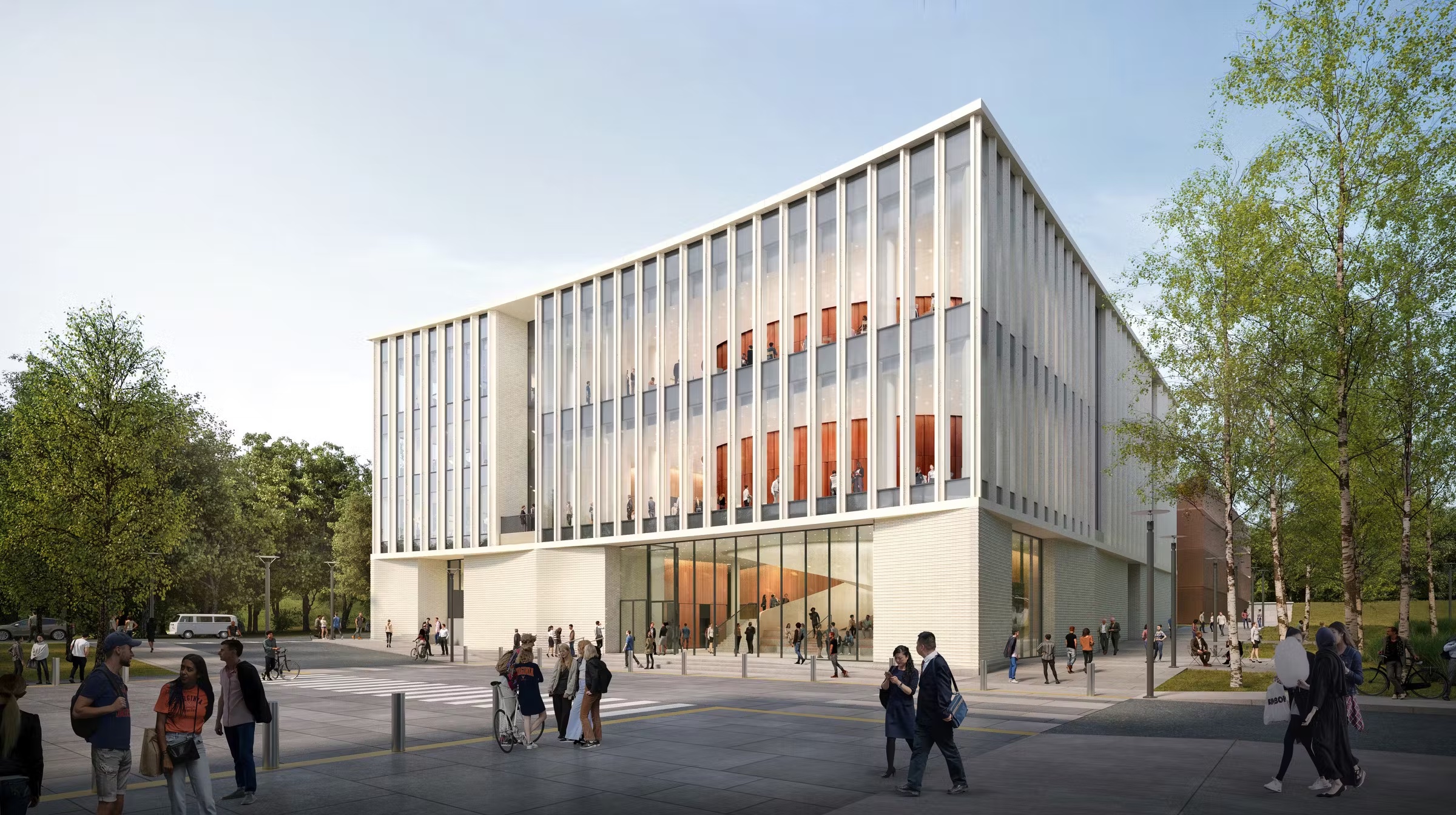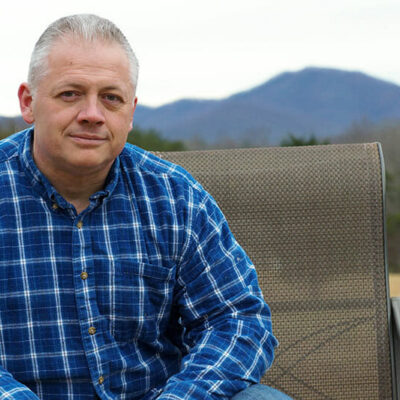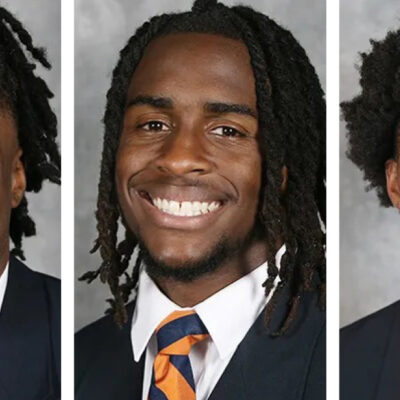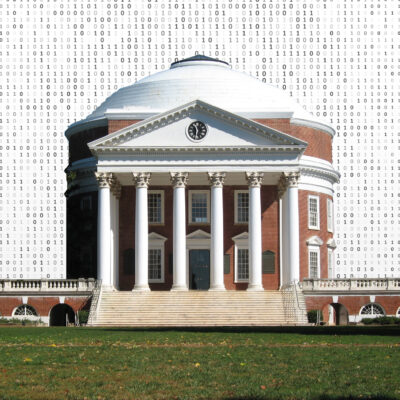UVA’s Karsh Institute of Democracy hosted its first Democracy360 event during what seemed like a politically charged time. It was fall 2023, and the ever-lengthening presidential election cycle was ramping up for a 2024 showdown between the Dem incumbent and GOP nominee.
Democrats were still hopeful about President Joe Biden’s prospects in the coming election. Republicans were anticipating former President Donald Trump’s comeback. The nation was divided, and engagement across the political aisle was largely antagonistic.
The inaugural Democracy360 gathering, billed as a setting for “thought leaders, journalists, policymakers, scholars, artists, and students to explore how we can collectively shape a thriving democratic future,” would bring people together to unpack the American experiment in a non-partisan way. It would bring people together—on a college campus—to talk about the biggest issues facing the United States.
Then the next two years happened: a meltdown at the top of the progressive party, a hotly contested presidential election, nine months of a headline-grabbing GOP presidency, and the stunning assassination of conservative thought leader Charlie Kirk on September 10 of this year.
Politics aside, few would argue that Kirk was not a champion of dialogue at institutes of higher learning. He spoke at hundreds of colleges and universities, often using a question-and-answer format and openly debating students. And he has been credited by many at the highest levels of the Republican party for bringing young people and students to the conservative movement.
It is against that backdrop that the Karsh Institute will host its second biennial Democracy360, drawing thousands of pundits, students, and civic-minded citizens to the University of Virginia grounds and Charlottesville’s Paramount Theater for seminars, lectures, and discussions from October 15 to 17.
“This is obviously timely stuff,” says renowned legal analyst and Democracy360 speaker Sarah Isgur. “I also hope people walk away with some bigger-picture thoughts on how to have these types of conversations in our current political climate … and how important humility is.”
A living classroom
Steve Light believes place has power. The vice president of education for the Thomas Jefferson Foundation and a Democracy360 event partner, Light and his team at Monticello think people best learn history’s lessons when they see and feel their connection to the past.
The implications for Jefferson’s historic home and associated museum are clear: Come to Monticello, experience a living classroom where you can learn what democracy meant to the founders of the United States of America, and take those lessons forward as you engage in democracy.
From there, it’s not a stretch to think of the entire City of Charlottesville, anchored by Jefferson’s university, as a living classroom itself—a place where residents and visitors might feel empowered to have the kinds of discussions that led a revolution and founded a new kind of government and country.
“You can look deeply at the history of a place and see it with all its contentions and challenges,” Light says. “I believe that looking through that history in an honest and full way helps us better understand the present.”
Light will direct two programs for Democracy360: Feast of Reason and Declaration Next. The first is an open-registration dinner and discussion relying on a proven Thomas Jefferson Foundation format: Guests play a card game designed to spark non-partisan discussion around a dinner table. They’re encouraged to share their experiences and perspectives but refrain from direct debate.
Declaration Next, in which students will work together over a day and a half to create a “Declaration for the Future of American Democracy,” takes the exercise further. After breaking bread at their own Feast of Reason, the students will convene to debate issues until they reach consensus on a Declaration of Independence for the modern generation. About 40 students from 12 colleges and universities around the Commonwealth were nominated and selected to take part in the program. “The group discussion and debate are designed to yield a unanimous document,” Light says. “It will take coalition and compromise.”
According to Karsh Institute Executive Director Melody Barnes, the Declaration Next working session will produce one of several Democracy360 deliverables. The Higher Education Democracy Exchange will hold a follow-up meeting from the 2023 event, with a goal of launching a digital platform to help campuses with democratic engagement next year. Another working session will focus on democracy and capitalism to “explore … how it can better support American interests at home and abroad.” Based on the work, the group expects to publish a policy playbook offering concrete economic growth strategies.
“We don’t see this as a passive experience,” Barnes says. “We aren’t just inviting people to come and sit and listen.”
For Monticello, Democracy360’s timing supersedes the current political climate. Next year will mark the United States’ 250th anniversary, and the Thomas Jefferson Foundation plans to use the milestone to “reflect on our founding ideals and consider what the next 250 years could hold.” Taking part in Democracy360 is just one way the foundation hopes to drive civic engagement in Charlottesville and beyond.
“We see the 250th not just as a moment of commemoration, but a moment of launch, a refounding,” Light says. “As civic educators, we are focused on certain skillsets that help us channel disagreement and learn to work with people we disagree with.”
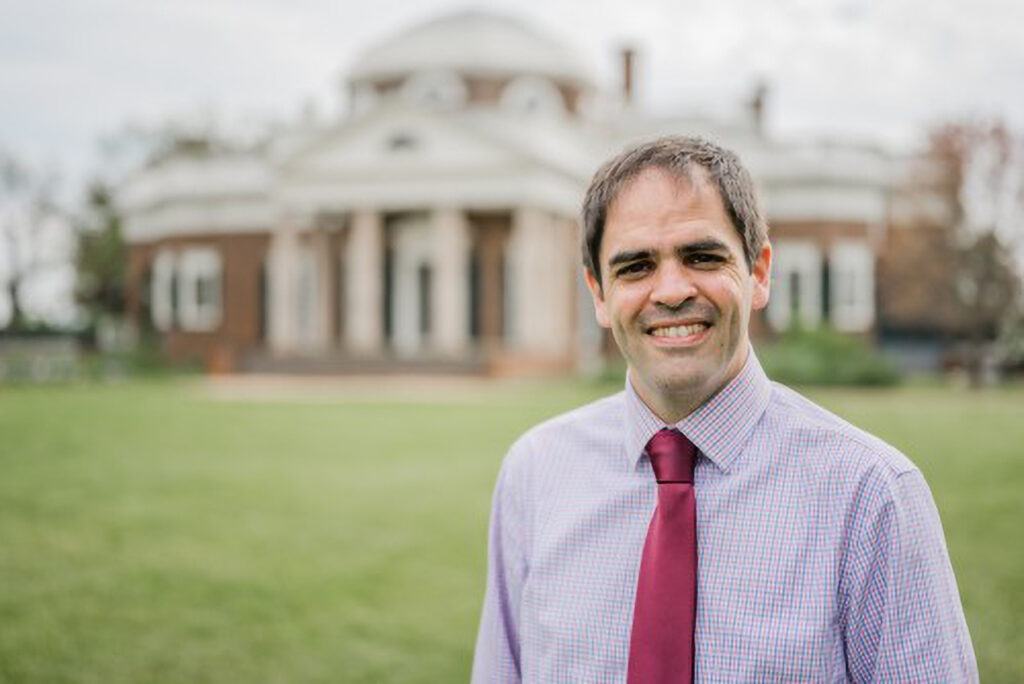
A chance to build
The three days of Democracy360 will feature five working sessions and nine public seminars, conversations, and roundtables. The Atlantic will serve as the event’s official media partner and host multiple meetings, including a live recording of the PBS news analysis show “Washington Week with The Atlantic,” with Atlantic editor Jeffrey Goldberg.
In the conference’s opening conversation, local politicos and activists will come together to talk about the roots of democracy. An advanced screening of Ken Burns’ documentary series “The American Revolution” follows, along with a “Braver Angels” debate, an exploration of what opportunity means in 21st-century America, and a community concert.
Isgur, editor of SCOTUSblog, host of the Advisory Opinions legal podcast, and a former Department of Justice Office of Public Affairs director, will help lead the “Guardrails of Democracy” conversation on Democracy360’s final day. The session is intended to address the concerns Americans on both sides of the political spectrum have about the function of the executive branch and ways to keep it in check—whether it is a Republican or Democratic administration.
“Our constitution demands that we have three functioning branches of government,” Isgur says. “And we haven’t had that in 15 years. I’d argue the judiciary is the only branch that our founders would recognize today. Congress has receded into oblivion, and the presidency is on human growth hormones. So, the real question is how to protect the judiciary and how to get those other two branches functioning again.”
Are the guardrails of U.S. democracy at risk of failing? Isgur says yes, but that’s nothing new; they’ve been at the same risk since the nation’s founding. What’s more, the details are perhaps less important than the discussion. For Democracy360, the critical takeaway is civic engagement, a populace capable of demanding that American democracy functions in the way it was intended.
“Our ability to engage in a way that allows us to productively disagree, that allows us to find the spaces of agreement, to do that in a manner that is civil and constructive while not mitigating our points of view, is essential,” Barnes says.
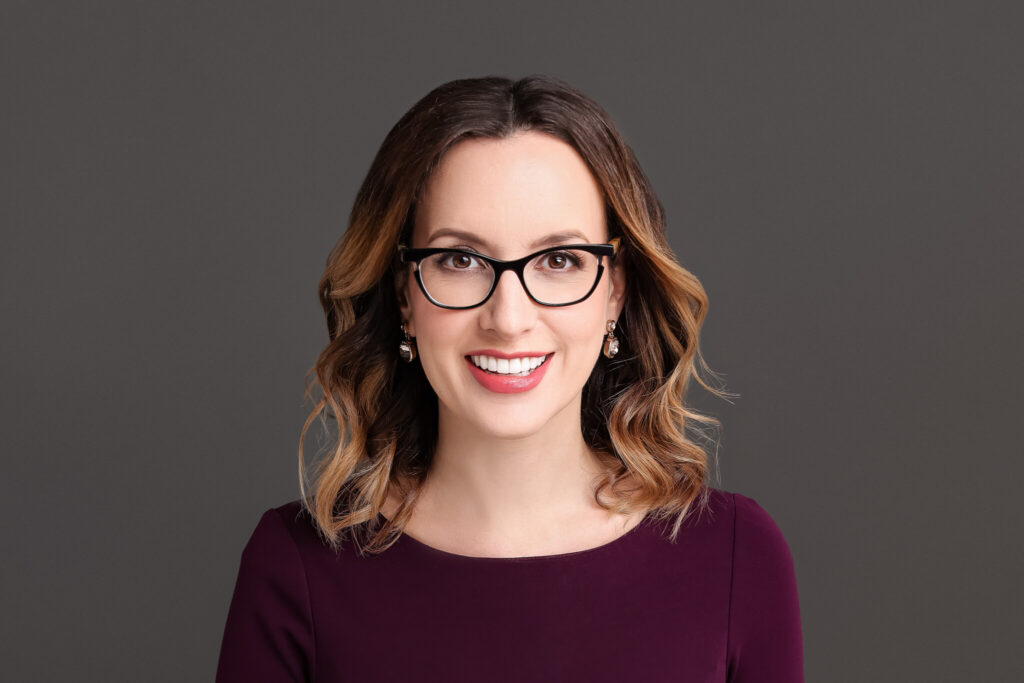
A changing democracy
Two years after the first installment of its new flagship event, the Karsh Institute has made changes to Democracy360. The 2023 convention featured dozens of speakers and 42 public events. While feedback was positive, administrators decided to scale back the open-registration events in favor of democracy-building activities. “Because of what we learned in 2023, we realized Democracy360 could serve as a platform for people to come together, roll up their sleeves, and hash some things out,” Barnes says.
The 2023 audience skewed to older ages, Karsh administrators say. The 2025 event is designed to increase student involvement. Barnes says the effort’s been successful. Registration has been robust for 18- to 22-year-olds, and “students from the Commonwealth and beyond are interested and eager to have this kind of opportunity to be curious, to wrestle with tough issues, productively disagree, and find those places where we do agree.”
The Karsh Institute targets its biennial civic gathering to a diverse group at a time when the word “diversity” is a political third rail. Barnes doesn’t believe seeking diverse perspectives is partisan, though. Pluralism, along with the rule of law, is at core of the U.S. constitutional republic, she says.
“Even with the challenges we face, we have to remain vigilant about advancing those core values and principles,” she says. “When I speak of diversity, I mean that in all of its different facets.”
Diverse opinions breed tension, Barnes says, but that too is at the heart of the American journey. From the Revolution to today, debate and even a sense of fear have driven our progress. Barnes believes Democracy360 can give people space to work through their fears about our changing civic environment and, maybe, find progress in peril.
Isgur, who ran Republican Carly Fiorina’s 2016 presidential primary campaign, says students need a civic reeducation. According to the Foundation for Individual Rights and Expression, a group that’s been tied to conservative donors, annual surveys show college students increasingly believe it is acceptable to use violence to stop speech they find offensive.
After the politically motivated attack that took the life of Kirk—along with the rise in political violence across the partisan spectrum—administrators at the Karsh Institute and Thomas Jefferson Foundation believe it is more important than ever to discuss ideas openly in the halls of higher education. Barnes says Democracy360 will not only be a place where diverse opinions are encouraged philosophically, but also one where it will be safe to express them without fear of physical reprisal.
Events like Democracy360, according to Isgur, are essential for putting together the pieces of the collective American future. “Almost everything we hold to be true now was once an offensive idea held by the minority,” she says. “If we can’t teach the next generation how to debate ideas, this experiment will fail regardless of anything else we do.”
